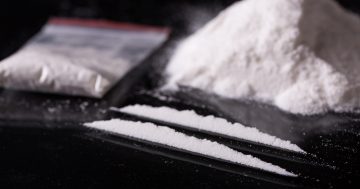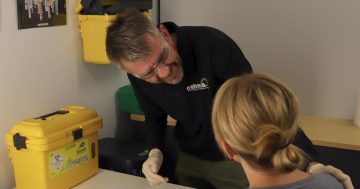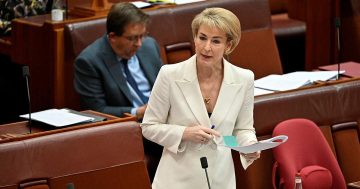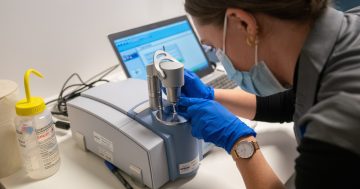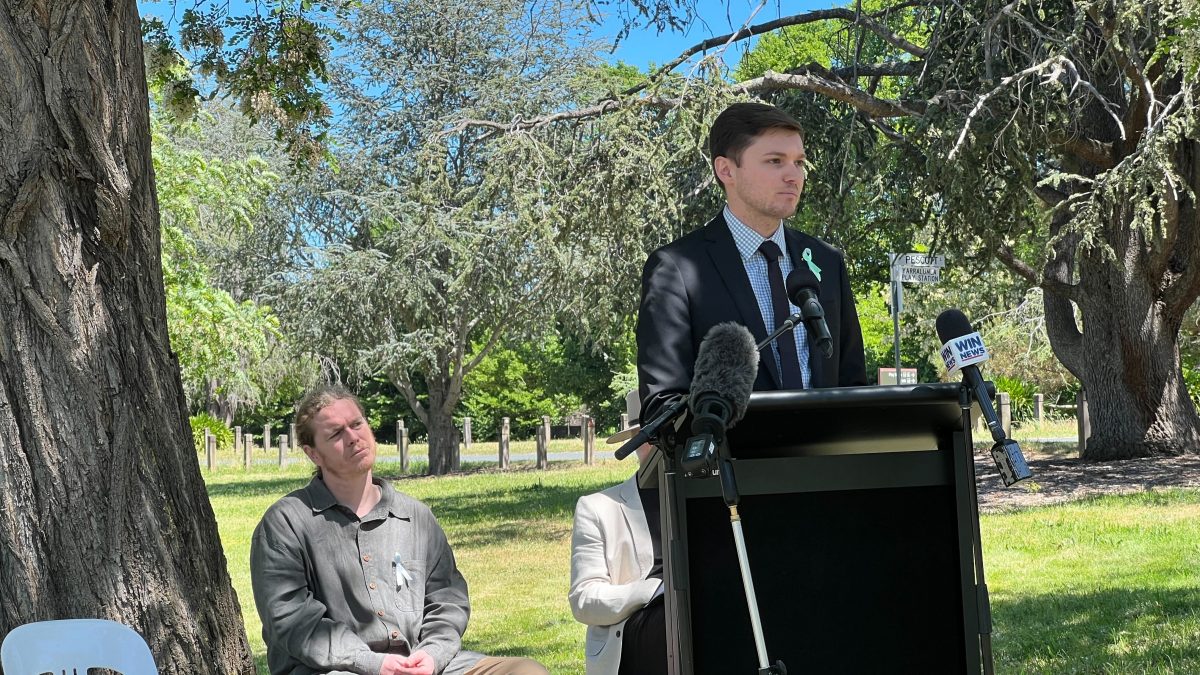
“I know what it feels like to wish those that I loved would have just said no,” Greens MLA Johnathan Davis told the remembrance ceremony (with Chris Gough, left). Photo: Lizzie Waymouth.
Days before the ACT’s nation-leading drug decriminalisation reforms are due to take effect, grieving friends and families gathered in Weston Park to remember their loved ones who have died from overdose and to call for a shift in the narrative around drug use.
Families and Friends for Drug Law Reform held its 28th Annual Remembrance Ceremony on Monday (23 October) at the same site it has been held since 1996, when then-chief minister Kate Carnell unveiled a memorial plaque.
This year, Reverend Martin Johnson read out the names of 319 people nominated by grieving families and friends. Some of them were as young as 16.
To commemorate their lives and other lives lost to illicit drugs, people were invited to lay flowers on the plaque.
Among them was Johnathan Davis MLA, whose perspectives as the Greens’ spokesperson for drug harm reduction have been affected by his own personal experiences.
“As some of you may know, I’m someone who has witnessed the effect of drug use within my own family,” he said.
“I have watched a family member grapple with addiction and it has deeply shaped my perspective on the issue. I understand the complexities, the pain and the fear surrounding drug use. But I also understand that our current drug policies have failed us.
“They have not protected our loved ones, nor have they provided effective solutions to address the root causes of drug dependence.”
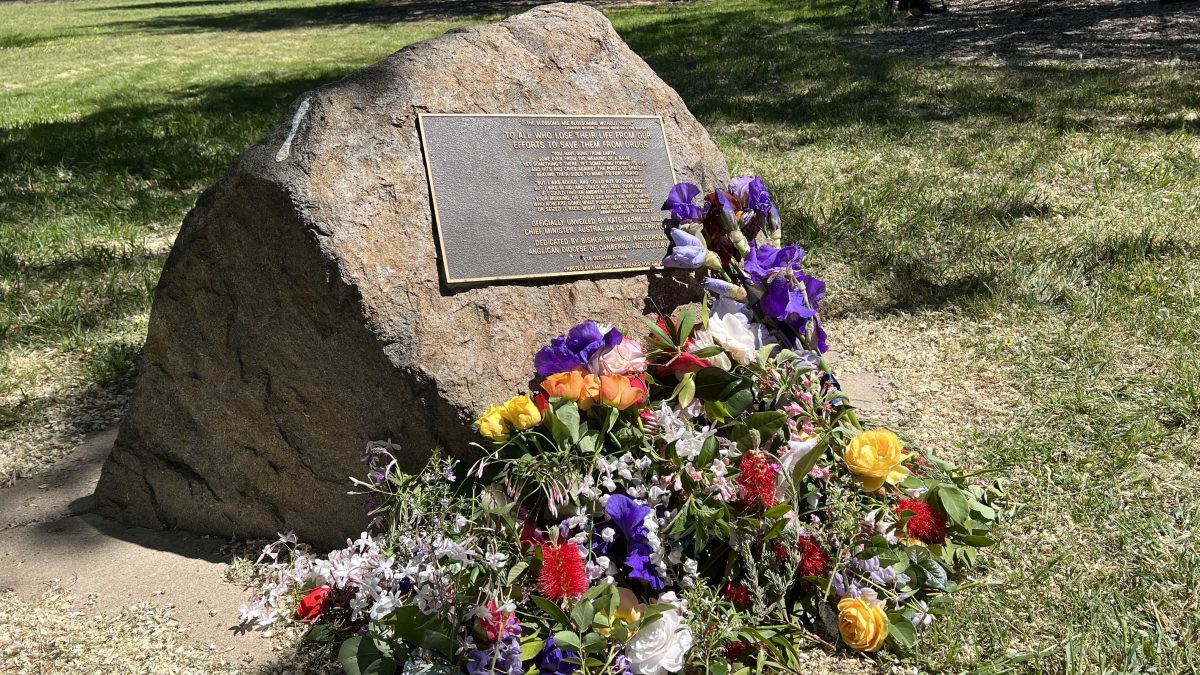
Flowers were laid in memory of those who have lost their lives to illicit drugs. Photo: Lizzie Waymouth.
Mr Davis admitted that when he first started working on this policy area shortly after his election to the Assembly, he found his party’s position on drug reform “personally challenging” due to his personal connection with this issue.
“The question of drug reform always took me to a deeply conservative place,” he said. “I know what it feels like to wish those that I loved would have just said no.”
However, over the years that followed, he said he has “come to a more informed place”.
In part, Mr Davis said this was thanks to the “fearless contributions” of those who have campaigned for drug decriminalisation in Canberra. This issue is particularly pertinent this year given the ACT is due to decriminalise small quantities of illicit drugs on Saturday, 28 October.
“I particularly remember the poignant testimony from one father who told us, ‘It is wrong that I am here today because my son died from a heroin overdose. He should not have died. He should be here today … I am here because perhaps the contribution I can make to this hearing might save a life in the future’.
“As this dad’s words demonstrate to us so clearly and so powerfully, families, parents and friends whose experiences of caring for and advocating for their loved ones provides an often heart-wrenching insight into the difficulty of navigating care systems under prohibition.”
Chris Gough, executive director of the Canberra Alliance for Harm Minimisation and Advocacy (CAHMA), told the families and friends affected by illicit drugs that “the times are changing” when it comes to attitudes towards drug use, and “part of this movement is the push for legal changes to decriminalise drug use in the ACT”.
“As I look around today at all of you, I see a group of people brought together by grief and tragedy,” he said.
“When a person dies, it is very difficult emotionally and socially to cope. But when the person dies in a way that is stigmatised, the situation becomes even more difficult. Mixed in with those overwhelming feelings of grief and loss are other emotions, especially guilt, shame, anger, fear and judgment.
“Unfortunately, those feelings are natural in a space where stigma and discrimination are so prevalent and where criminalisation is our social yardstick for drug use. Stigma and discrimination create many of the harms that have caused us to be here today.
“We should be very proud that on the coming weekend, we will be the first jurisdiction in Australia to decriminalise personal drug use.
“We, together, are changing the narrative.
“We are recognising that drug use is not something that you should be locked up for, but rather, that you should be helped with just like any other health and any other social issue in doing so.
“What we cannot be proud of as a society is the number of deaths it has taken us to realise that a new approach is necessary.”












